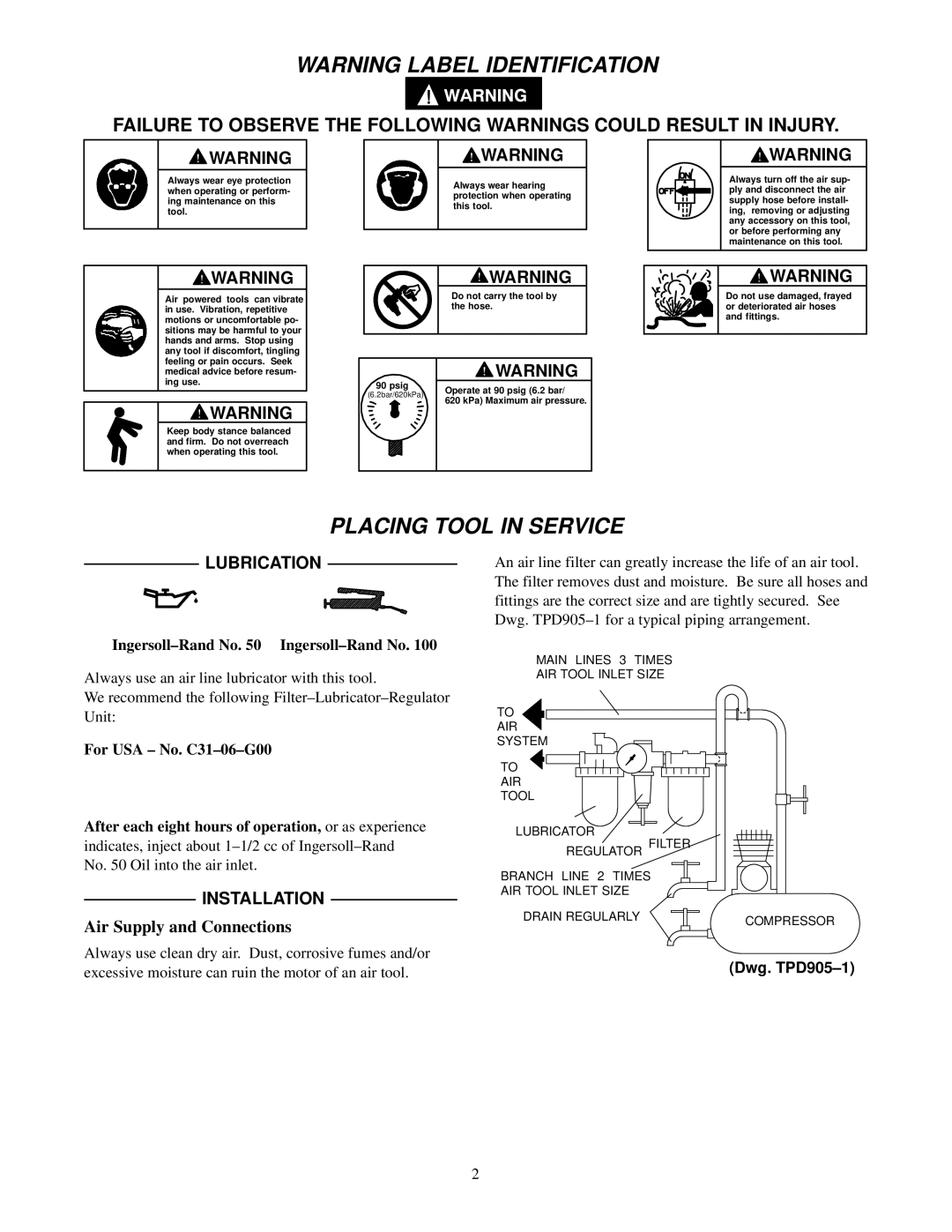
WARNING LABEL IDENTIFICATION
FAILURE TO OBSERVE THE FOLLOWING WARNINGS COULD RESULT IN INJURY.
![]() WARNING
WARNING
Always wear eye protection when operating or perform- ing maintenance on this tool.
![]() WARNING
WARNING
Always wear hearing protection when operating this tool.
![]() WARNING
WARNING
Always turn off the air sup- ply and disconnect the air supply hose before install- ing, removing or adjusting any accessory on this tool, or before performing any maintenance on this tool.
![]() WARNING
WARNING
Air powered tools can vibrate in use. Vibration, repetitive motions or uncomfortable po- sitions may be harmful to your hands and arms. Stop using any tool if discomfort, tingling feeling or pain occurs. Seek medical advice before resum- ing use.
![]() WARNING
WARNING
Keep body stance balanced and firm. Do not overreach when operating this tool.
![]() WARNING
WARNING
Do not carry the tool by the hose.
![]() WARNING
WARNING
90 psig | Operate at 90 psig (6.2 bar/ | |
(6.2bar/620kPa) | ||
620 kPa) Maximum air pressure. | ||
|
![]() WARNING
WARNING
Do not use damaged, frayed or deteriorated air hoses and fittings.
PLACING TOOL IN SERVICE
LUBRICATION
Ingersoll±Rand No. 50 Ingersoll±Rand No. 100
Always use an air line lubricator with this tool.
An air line filter can greatly increase the life of an air tool. The filter removes dust and moisture. Be sure all hoses and fittings are the correct size and are tightly secured. See Dwg. TPD905±1 for a typical piping arrangement.
MAIN LINES 3 TIMES
AIR TOOL INLET SIZE
We recommend the following Filter±Lubricator±Regulator Unit:
For USA ± No. C31±06±G00
After each eight hours of operation, or as experience indicates, inject about 1±1/2 cc of Ingersoll±Rand No. 50 Oil into the air inlet.
TO
AIR
SYSTEM
TO
AIR
TOOL
LUBRICATOR
REGULATOR
FILTER
INSTALLATION
Air Supply and Connections
Always use clean dry air. Dust, corrosive fumes and/or excessive moisture can ruin the motor of an air tool.
BRANCH LINE 2 TIMES
AIR TOOL INLET SIZE
DRAIN REGULARLY | COMPRESSOR |
|
(Dwg. TPD905±1)
2
